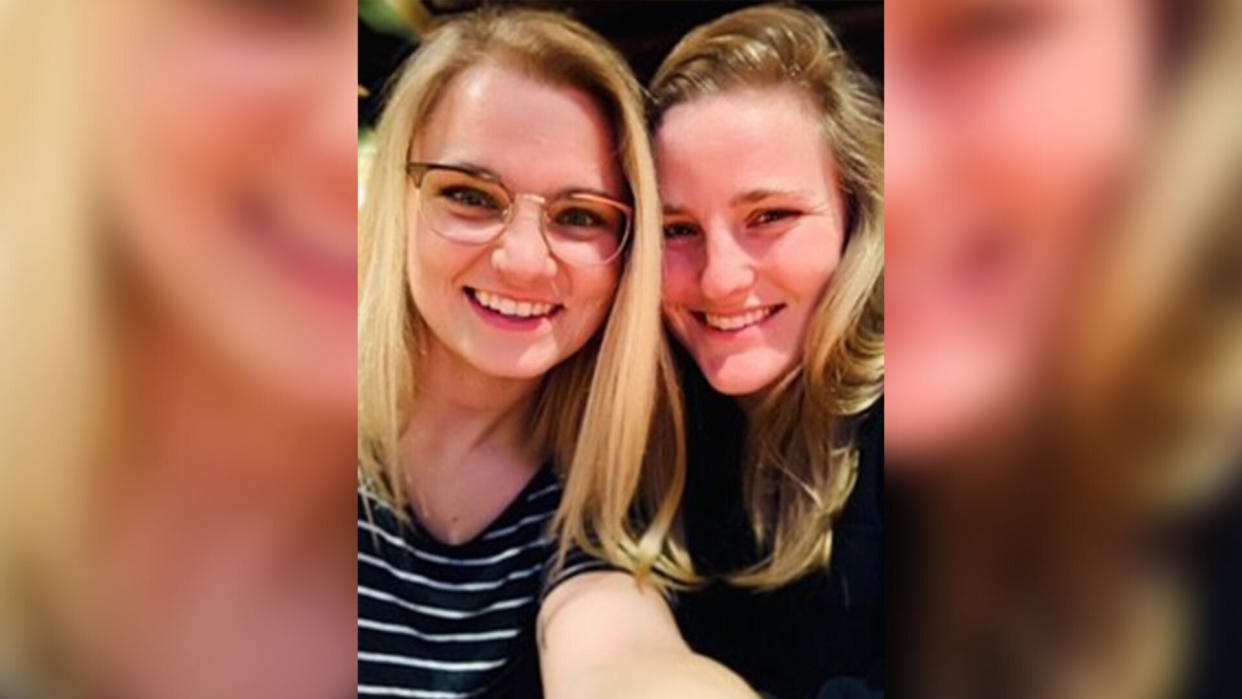Tennessee couple distraught after new law prohibits friend from officiating wedding: 'It's taking away comfort'

Tennessee bride-to-be Laura Stone just wanted her wedding to be an intimate affair, with all of their closest friends and family. As befitting such an occasion, she and her fiancé, 27-year-old Allison Vandecar, asked a friend to get ordained online so that she could officiate at the October ceremony.
"It was important when we started to envision our wedding that it have a relaxed atmosphere in which we can enjoy ourselves that isn't as stuffy or formal as some weddings,” Stone, 29, tells Yahoo Lifesytyle. In order to add to that vibe, she says, they wanted “an individual who knows our relationship and both parties intimately.”
But now the couple will likely have to figure out an alternative plan. That’s because the enactment of House Bill 213, a new Tennessee law, prohibits people ordained online from officiating weddings in that state.
Tennessee representatives and other lawmakers who support the new legislation say it’s a way to help people from being scammed.
“This was made to protect people who get married by someone ordained online,” Rep Ron Travis, the Tennessee lawmaker who sponsored the bill, tells Yahoo Lifestyle. “It’s not a valid license. It was not within the scope of marriage ceremonies.”
Travis adds that spending a few minutes online shouldn’t make an individual qualified to be a religious leader. “If someone goes online to take courses and gets a minister degree online that’s different than someone clicking a button and paying $50 to become an ordained minister,” Travis says.
“If I went online and wanted to get a Master’s degree in engineering and clicked a button and paid some money— would this make me an engineer? No.”
While limiting the scope of religious officiants, the law does expand the number of government officials allowed to perform a civil marriage.
But critics of the bill believe the legislation is less about protecting citizens from getting scammed and more about making non-Christians and LGBTQ people have to jump through more hoops in order to get married in the state.
“It's all just a way to make it that much harder for non Christians and LGBTQ to marry,” one Facebook user criticized online.“Definitely unconstitutional and I hope someone sues the state over it.”
Another user added, “This is restrictive and forces people to use a religious institution. This benefits no one.”
Weddings are either civil ceremonies overseen by a county clerk or a religious ceremony solemnized by an ordained minister. Several websites, like The Universal Life Church, offer ordainment for just this purpose online. With a short form and a couple clicks of a mouse, a user can pay a fee for a minister certification and perform a legal wedding. But after July 1, such certifications will no longer be valid in Tennessee.
Before Stone and Vandecar knew the Tennessee law would affect their own wedding, they chose Stone’s longtime rugby teammate Vivian Swayne to preside over their wedding vows. “She is someone who knows both myself and Allison very well,” Stone says, adding that Swayne’s “bubbly charismatic nature” wins everyone over. “We knew from the beginning that we wanted her personality to shape the ceremony.”
Now, the Tennessee couple is scrambling to figure out how they will legalize their marriage. Beyond adding more work, costs and stress to the couple’s plate before the wedding, Stone says the Tennessee law will take away “the feelings of comfort and intimacy” on their special day.
Other critics of the legislation say it’s infringing on the constitutional idea of separation of church and state, and that it’s not the government’s place to determine who can be a religious leader.
“Who’s right is it to say, whether or not someone ordained online is a religious leader or not. That is between them and God,” wrote one Facebook user. “Another reason, I believe the state has not place in marriage.”
Charlie Kay, an administrator for Universal Life Church says that while the church is “saddened and disappointed” by the law, that they are not surprised given an “an escalating pattern of unconscionable and discriminatory efforts undertaken by some lawmakers in that state.”
“The Universal Life Church is the faith of the future: egalitarian, open, and committed to the use of technology to instruct, assist, and connect our members around the world,” Kay tells Yahoo Lifestyle. “We hope one day that lawmakers in Tennessee will come to understand these realities, and honor their duty to defend the Constitution by protecting the religious freedoms of all of their constituents — and we don’t intend to rest until they do.”
Travis defends the bill, explaining that Tennessee lawmakers were simply clarifying what was already written.
“People are just angry that this was brought to light. But hey, the law is the law.”
Read more from Yahoo Lifestyle:
? Man arrested for crashing wedding of complete strangers: 'It's a great story'
? Bride says venue owner took her money, disappeared 5 days before wedding: 'I'm angry'
? Church votes to ban couple's same-sex wedding ceremony: 'It felt like a rejection'
Follow us on Instagram, Facebook, and Twitter for nonstop inspiration delivered fresh to your feed, every day.
